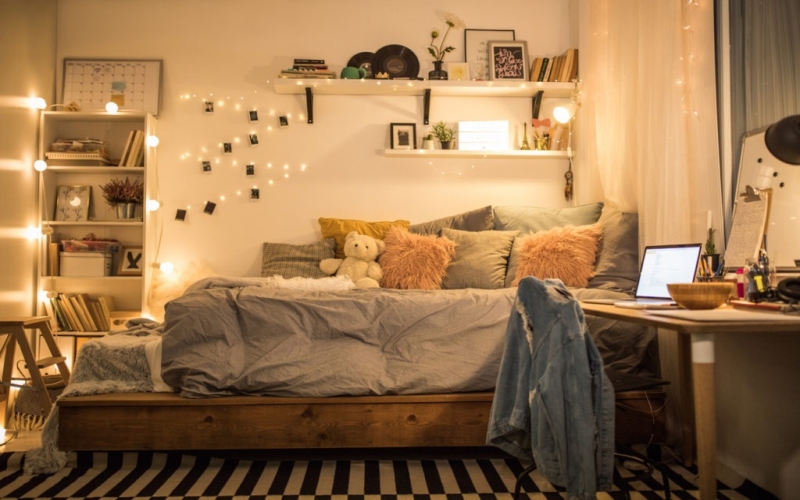Ensuring that students have access to safe, comfortable, and convenient accommodation is a crucial aspect of their educational journey. For many students, living on campus or in close proximity to their institution is not only a necessity but also a valuable part of their college experience. As universities and colleges continue to welcome a diverse range of students, it is imperative to provide a variety of residential resources to meet their unique needs. From traditional dormitories to apartments and homestays, the options for student accommodation have expanded significantly in recent years. However, with this expansion comes the challenge of maximizing these resources to best serve the student population. Explore a wide range of student rental options in Australia, catering to your needs and preferences, on our platform. In this article, we will explore the various residential resources available to students and discuss strategies for optimizing them to create a positive and conducive living environment. We will also delve into the benefits of providing a diverse range of housing options and the impact it has on the overall academic success and well-being of students. By understanding the importance of student accommodation and effectively managing residential resources, institutions can further enhance the overall student experience and promote their academic and personal growth.
Explore all housing options available
When it comes to finding suitable accommodations for students, it is essential to explore all available housing options. By doing so, students can ensure that they make an informed decision and find a living arrangement that meets their specific needs and preferences. This includes considering on-campus housing, off-campus apartments or houses, shared living spaces, or even homestays. Each option has its own merits, whether it be proximity to campus, amenities, affordability, or the opportunity to immerse oneself in a supportive community. By exploring all housing options, students can maximize their accommodation experience and create a comfortable and conducive living environment during their academic journey.
Utilize university resources for guidance
One valuable resource that students can take advantage of when it comes to maximizing their accommodation experience is the array of university resources available for guidance. Universities often have dedicated departments or offices specifically designed to assist students in finding suitable housing options. These resources can provide valuable information and support throughout the entire housing search process, from understanding the different housing options available to connecting students with reputable landlords or rental agencies. Additionally, university resources can offer guidance on understanding lease agreements, tenant rights and responsibilities, and even provide resources for resolving any housing-related issues that may arise. By utilizing these university resources, students can ensure they are making informed decisions about their accommodations and have access to the necessary support throughout their time as residents.
Consider budget and location carefully
When it comes to finding the perfect student accommodation, it is crucial to consider budget and location carefully. Your budget will play a significant role in determining the type of accommodation you can afford, whether it be shared apartments, dormitories, or private studios. It is important to set a realistic budget that covers not only the rent but also utilities and living expenses. Additionally, consider the location of the accommodation in relation to your university campus and other essential amenities. Opting for a location that is within walking distance or easily accessible by public transportation can save you valuable time and money. By thoroughly considering both budget and location, you can make a well-informed decision and maximize your student accommodation experience.
Communicate effectively with potential roommates
To ensure a harmonious living environment, it is crucial to communicate effectively with potential roommates when considering student accommodation. Open and honest communication from the start can help establish expectations, boundaries, and a shared understanding of each individual’s needs and preferences. It is essential to discuss important aspects such as study habits, cleanliness standards, noise levels, and personal schedules. Additionally, addressing potential conflicts or concerns upfront can prevent misunderstandings and promote a positive living experience. Regular check-ins and respectful dialogue throughout the tenancy can further enhance roommate relationships and contribute to a supportive and inclusive living environment.
Prioritize safety and security measures
Ensuring the safety and security of students should be a top priority when maximizing student accommodation. Implementing robust safety measures can help create a secure living environment and provide peace of mind to both students and their families. Some essential safety measures to consider include installing secure entry systems, well-lit pathways and common areas, and surveillance cameras in strategic locations. Additionally, regular maintenance and inspections of fire alarms, extinguishers, and emergency exits are crucial to meet safety regulations. It is also important to establish clear protocols for reporting any safety concerns or incidents and to provide easily accessible emergency contacts for students. By prioritizing safety and security measures, residential resources can create a conducive and protected living environment for students.
Conclusion
Maximizing student accommodation is essential in creating a positive and productive living environment for students. By utilizing residential resources such as space planning, furniture selection, and community building, universities can create a welcoming and efficient living space for their students. It is important for universities to continuously evaluate and improve their residential resources to ensure the best possible experience for their students. With these strategies in place, students can thrive academically and personally, making the most out of their college experience.





